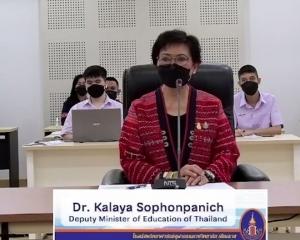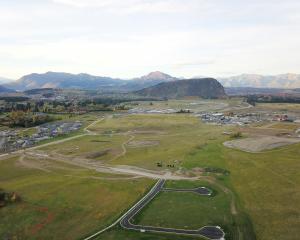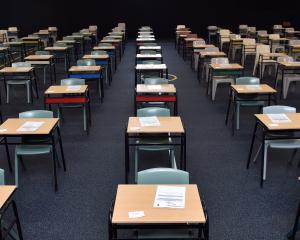An Education Review Office (ERO) report has found more than half of the Ministry of Education's learning and behaviour resource teacher (RTLB) clusters are poorly managed, and the widespread lack of accountability and use of ministry funds was of concern.
Evidence was gathered during term one this year, from reviews of 40 RTLB clusters, representing 20% of the 199 RTLB clusters throughout New Zealand.
Eleven Dunedin secondary schools with four RTLB teachers, and 27 Invercargill primary schools with 10 RTLB teachers were part of the sample of schools investigated.
RTLBs are itinerant specialist teachers who work with classroom teachers, in clusters of schools, to improve the educational outcomes of pupils with moderate learning and/or behavioural difficulties.
The RTLBs are employed by schools, and managed and governed by schools in their cluster.
The Government allocates about $73 million a year to fund the service.
A review by ERO in 2004 found the RTLBs were not well governed by the Ministry of Education or managed by clusters.
The ministry responded by developing a policy document and guidelines - the Resource Teachers: Learning and Behaviour (RTLB) Policy and Toolkit (2007) to replace the previous RTLB Guidelines 2001.
The intent of the 2007 document was to guide schools in their management of the resource and to improve accountability.
Three national positions were also established - a national RTLB co-ordinator, a professional practice adviser and an RTLB adviser.
"Despite increased guidance and support from the Ministry of Education, the wide variability of governance and management practice ERO reported in 2004 remains evident," the ERO report stated.
"The findings in this evaluation [2009] closely mirror those of ERO's 2004 evaluation of the service.
A lack of strong external and internal accountabilities for the use of funding and management of RTLB remains an issue in a large proportion of clusters."
ERO was also concerned at the "considerable variation" in how clusters managed learning support funding and year 11-13 funding.
It meant the ministry could not be assured these funds were being allocated and used in accordance with RTLB policy.
Across the 40 clusters in this evaluation, ERO found evidence of ministry staff giving advice or making decisions that were inconsistent with the stated RTLB policy.
"This evaluation of 40 of the clusters demonstrates that the current model for governing and managing the RTLB service does not ensure all students referred to the RTLB service are well served," the report stated.
"Despite improvements that could be made within the current cluster model, the variability found in governance, management and delivery of the RTLB service nationally indicates a need for review of the model to ensure a more cohesive and consistent approach."
However, Otago Primary Principals Association president Steve Hayward disagreed.
He believed the "tool kit" provided by the ministry after ERO's 2004 review created a "robust" set of guidelines for schools to follow.
"The tool kit works fine if you follow it. I suspect, in some areas of New Zealand, schools have got the kit and stuffed it on a shelf."
Both Mr Hayward and Otago Secondary Principals Association chairman Philip Craigie said primary and secondary schools in Dunedin and the Taieri had been well served by RTLBs and they were very well managed.
As a result, clusters in the area had been held up as a model for other schools around New Zealand.
"If it isn't broken, it doesn't need fixing. Maybe the ministry needs to focus on clusters and areas that need help rather than tar all schools with the same brush."











